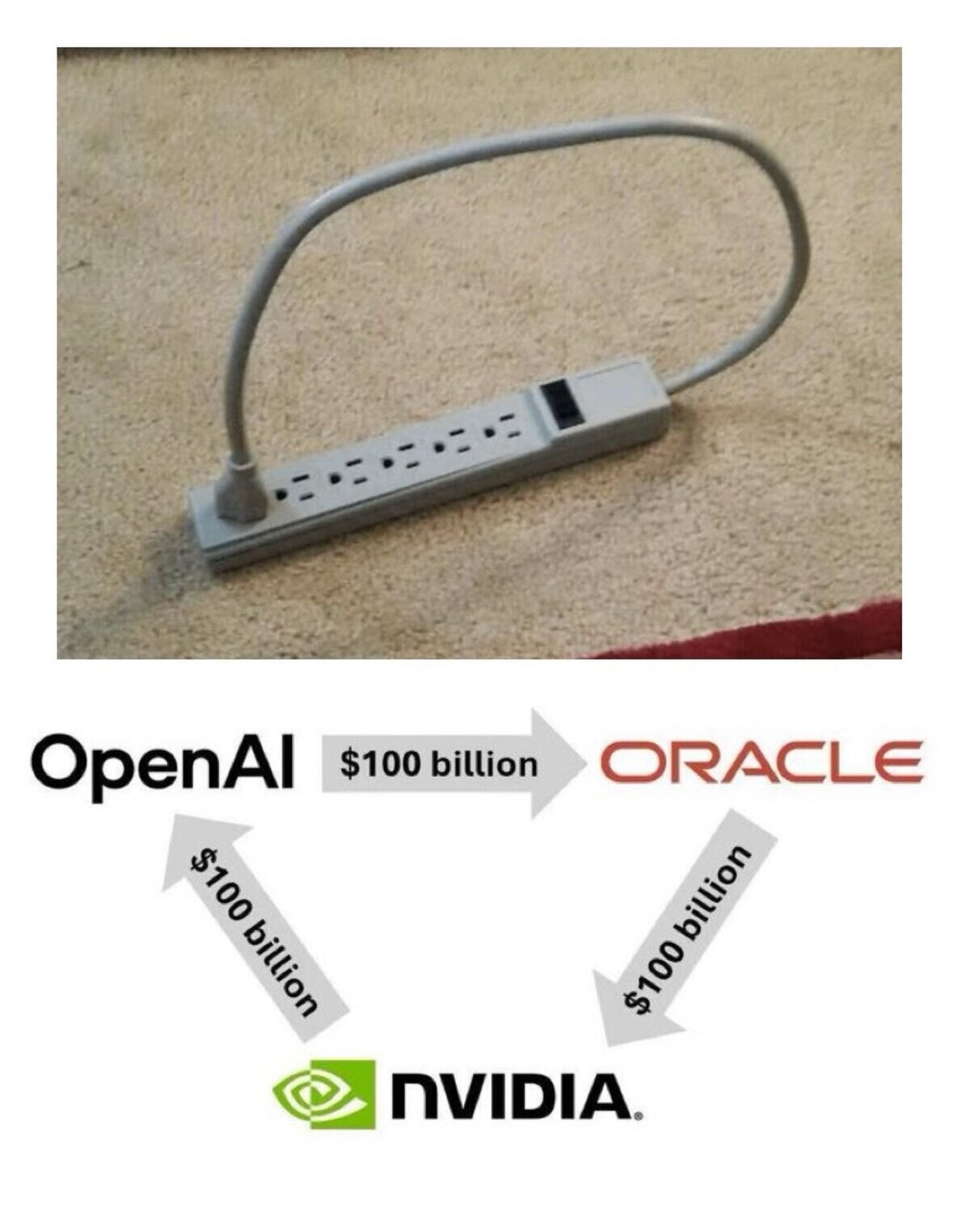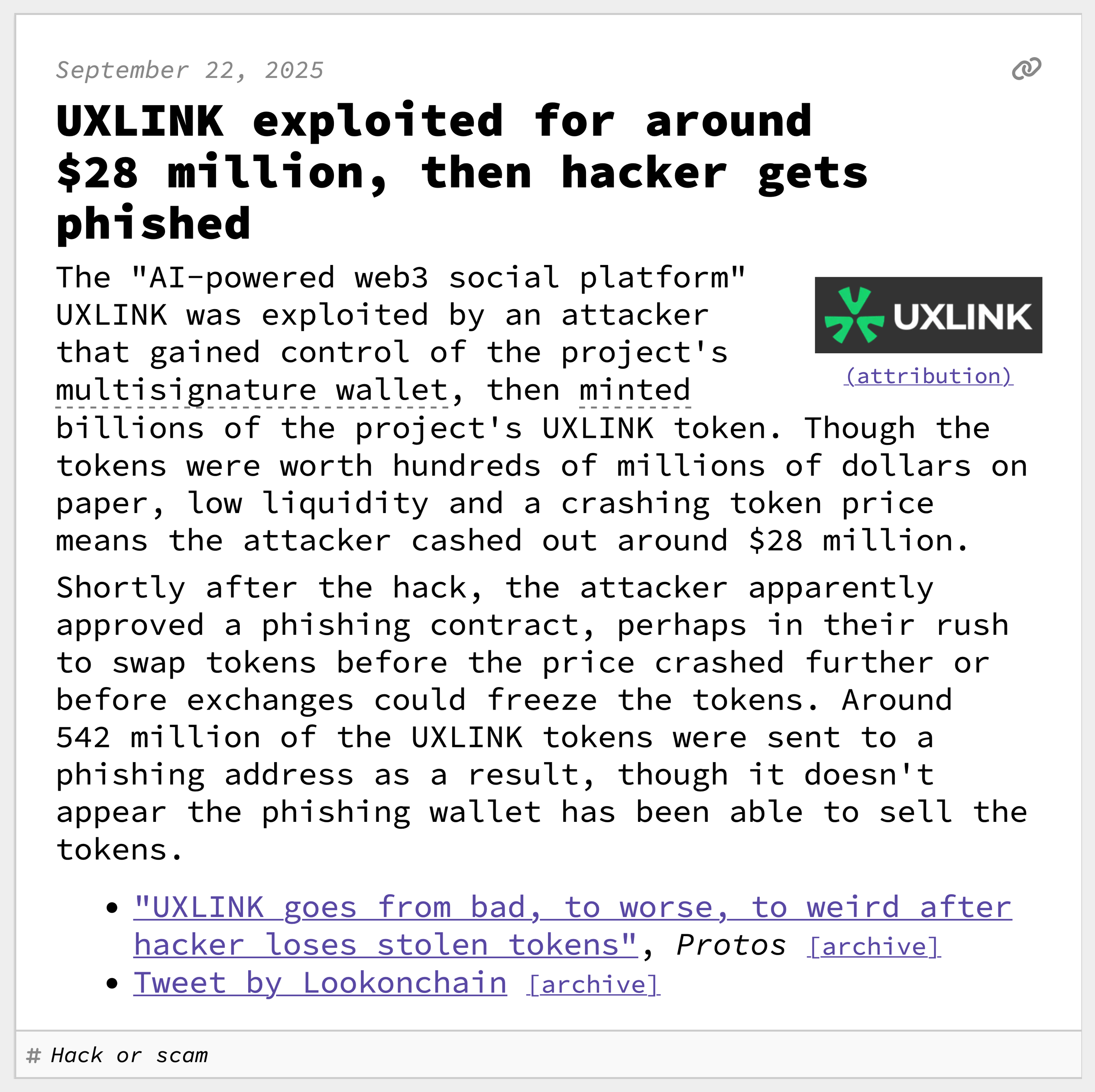Posts
2511Following
665Followers
1491You just don't understand the fourth industrial revolution
sp00ky cR0w 🏴
cR0w@infosec.exchangeRE: https://infosec.exchange/@cR0w/115231558276357271
And now we have a watchTowr write-up. 


https://labs.watchtowr.com/is-this-bad-this-feels-bad-goanywhere-cve-2025-10035/
I also appreciate them publishing it despite the conclusion. It's insightful despite not reaching their research goal, and they don't make wild speculations like some researchers tend to.
buherator
buheratorhttps://cervello.security/blog/vulnerabilities-incidents/research-cve-2025-1727/
watchTowr
watchtowrcyber@bird.makeup🚨 SolarWinds, the gift that keeps on giving: a new Web Help Desk patch bypass, CVE-2025-26399, enables unauthenticated RCE via deserialization.
It’s a patch bypass of CVE-2024-28988/CVE-2024-28986 - previously exploited.
Given SolarWinds’ past, in-the-wild exploitation is highly likely. Patch now.
Need help assessing your exposure? https://watchtowr.com/
buherator
buheratorhttp://blog.quarkslab.com/exploiting-lenovo-driver-cve-2025-8061.html
Colin Cogle 
colin@mastodon.colincogle.name
Help, I need a code signing certificate that won't bankrupt me.
Three years ago, I paid $100 for a three-year code signing certificate. I've signed all my open-source projects' releases with it. Now that it's renewal time, Certera (SignMyCode.com) wants almost $700 for the same three-year certificate (excluding the mandatory HSM purchase, which I am totally on board with).
I write silly C and PowerShell code, and I timestamp my signatures so that they're perpetually valid. My PowerShell Gallery stuff, as well as binaries of aprs-weather-submit on Windows and macOS, are all signed and hashed (but not notarized by Apple, because that's another $99 a year for something that feels done unless Bob Bruninga's followers are thinking about APRS 2.0).
If I can't find a solution, anything I write or update in the future will have to be released as unsigned unless I half-ass something (like the Notepad++ developer using self-signed certs -- semi-dangerously clever). $100 every three years, fine. $700 every three years, and I'll do it if my three fans click my Buy Me A Coffee link over and over.
Is there any CA out there that will offer open-source, not-for-profit developers like me a chance to get globally-trusted code signing certificates? I don't think SigStore ever took off (sadly), and even if it did, I don't think it's part of the Microsoft Authenticode program.
#CodeSigning #SSL #TLS #certificates #Certera #SoftwareDevelopment #C #PowerShell #PowerShellGallery #AmateurRadio #HamRadio #APRS #APRS-Weather-Submit #GitHub #security #developer #Windows #macOS #Linux #Authenticode #DevSecOps #DevOps
Shane Celis
shanecelis@mastodon.gamedev.placeSALLY STRUTHERS: Do you use floats? Sure. We all do. But did you know a + b + c ≠ c + b + a with many floats? No. Well, neither did I, but with this one PDF you can become a fount of floating-point foibles to impress and depress your colleagues around the water cooler. Isn't this fun?
buherator
buheratorIt's be nice if there was support for basic HTTP auth because I don't want to open this to everyone either.
#FOSS #MP3 #mixtape
buherator
buheratorhttps://www.synacktiv.com/en/publications/the-phantom-extension-backdooring-chrome-through-uncharted-pathways.html
Viss
Viss@mastodon.socialat this point anybody still using solarwinds should just be considered a huge security risk
https://www.theregister.com/2025/09/23/solarwinds_patches_rce/
4Dgifts
4Dgifts@mastodon.socialRE: https://infosec.exchange/@quarkslab/115254681302340584
Hard to believe that arbitrary RW to physical pages and arbitrary RW of LSTAR MSR are just bugs and not backdoors but I've seen too many of those things to by default attribute it to malice
Pavel Yosifovich
zodiacon@bird.makeupNew video: Inside Windows Sessions
https://trainsec.net/library/windows-internals/inside-windows-sessions/
buherator
buheratorhttps://www.linaro.org/blog/kmemdump-step-by-step-on-qualcomm-automotive-platform/
Talos Vulnerability Reports
talosvulnsAdobe Acrobat Reader Page Property Use-After-Free Vulnerability
https://talosintelligence.com/vulnerability_reports/TALOS-2025-2222
CVE-2025-54257
Kaye 🔞
toydrgn@rubber.socialWith all this discourse about "AI art" I think we've lost sight of the simple joy of generating terrible nonsense via Markov Chains
web3 is going just great
web3isgreat@indieweb.socialUXLINK exploited for around $28 million, then hacker gets phished
September 22, 2025
https://www.web3isgoinggreat.com/?id=uxlink-exploit
Taggart 
mttaggart@infosec.exchange
RE: https://infosec.exchange/@mttaggart/115219922584580823
Ayyy look at that! Deprecating TOTP in favor of FIDO-based MFA, and removing the local publishing bypass!
sp00ky cR0w 🏴
cR0w@infosec.exchangeI'm not saying this one is intentional, but it sure feels negligent at best.
sev:HIGH 8.2 - CVSS:4.0/AV:L/AC:L/AT:N/PR:N/UI:P/VC:H/VI:N/VA:N/SC:H/SI:N/SA:N
The vulnerability allows any application installed on the device to read SMS/MMS data and metadata from the system-provided Telephony provider without permission, user interaction, or consent. The user is also not notified that SMS data is being accessed. This could lead to sensitive information disclosure and could effectively break the security provided by SMS-based Multi-Factor Authentication (MFA) checks.
The root cause is a combination of missing permissions for write operations in several content providers (com.android.providers.telephony.PushMessageProvider, com.android.providers.telephony.PushShopProvider, com.android.providers.telephony.ServiceNumberProvider), and a blind SQL injection in the update method of those providers.
and
While OnePlus does advertise a public bug bounty program for reporting vulnerabilities, Rapid7 cannot engage with their bug bounty program due to its restrictive Non Disclosure Agreement (NDA) terms and conditions. Therefore CVE-2025-10184 is being disclosed as not fixed by the vendor at the time of disclosure.





